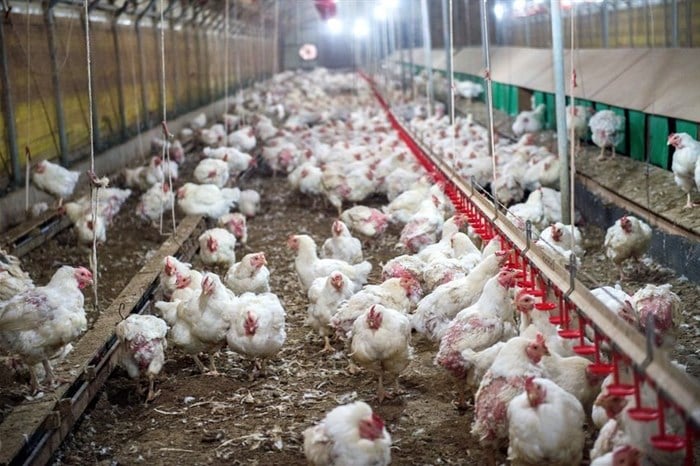
Related
Top stories

Marketing & MediaWarner Bros. was “nice to have” but not at any price, says Netflix
Karabo Ledwaba 10 minutes

Energy & MiningSouth Africa's hydrogen horizon brightens with R100m Wits-Air Liquide initiative
15 minutes




More news
















The association added that when the farms lose power, the birds do not feed or drink.
Head of the SA Poultry Association’s broiler board, Izaak Breitenbach said that the impact on the poultry industry is diverse and affects operations along the value chain. Breitenbach added that the rolling blackouts and unexpected outages also create a “logistical nightmare" with abattoirs running on limited storage capacity.
#Loadshedding has a huge impact on South Africa's poultry industry. For an abattoir that slaughters 1 million #chickens per week the cost of running generators is about R100 000 per hour, during rolling blackouts.https://t.co/Qb19oxhSqP @FarmersWeeklySA pic.twitter.com/J9nK3ca6HG
— South African Poultry Association (@sa_poultry) July 11, 2022
In addition to Eskom’s schedule of rolling blackouts, which reached Stage 6 earlier this month, farmers in Limpopo, North West and Mpumalanga have also been hit by severe and unscheduled power outages referred to as ‘load reduction’.
According to a Business Insider news report, Agri Limpopo surveyed farmers (beyond the poultry industry) in the province about the effects of load reduction on operations. It found that 146 farmers out of 154 that were quizzed were affected. About 116 farmers said they use a generator when load reduction is being implemented.
The survey found that the farmers' cumulative cost of running generators amounted to R304,855 per day, with each farm's bill reaching an average of R2,628. Chicken farms are also losing large quantities of chicken each hour spent without heating, Agri Limpopo said.
Deidre Carter, CEO of Agri Limpopo said that the industry cannot continue to absorb costs associated with poor and failing governance, adding that the continued sustainability, let alone growth and global competitiveness of the agricultural sector, is at stake.
Carter is calling upon government to intervene in this matter and to urgently develop a coherent plan to address the root causes of Eskom's unilaterally implemented load reduction strategy.